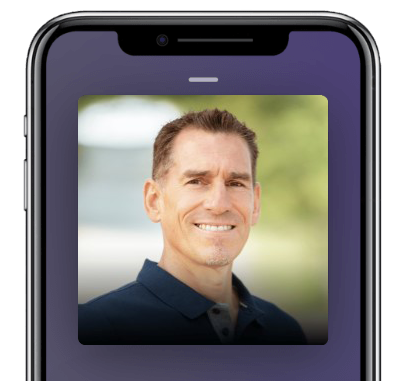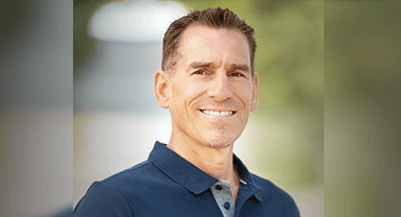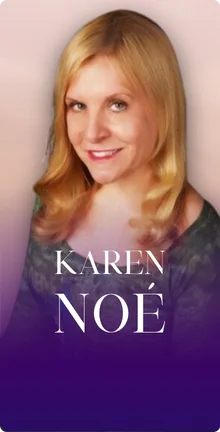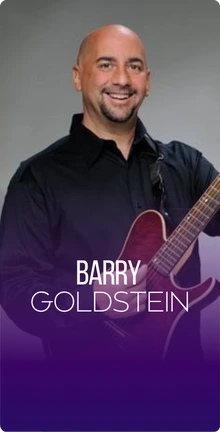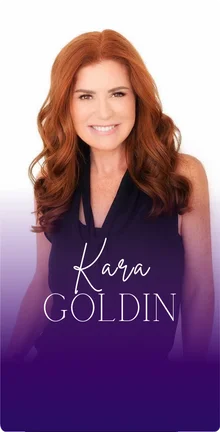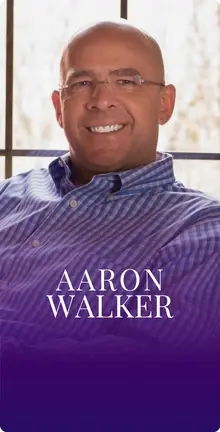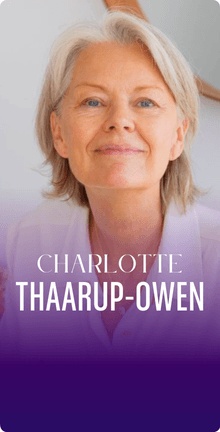In this Episode
- [00:09]Stephan introduces his next guest, Dan LeFave, who received a second chance at life after surviving a tragic accident. Entrepreneurs hire him to establish self-managing business systems and automation.
- [01:39]Dan narrates encountering a tragic accident that became a life-defining moment and awakening experience.
- [04:52]Stephan asks Dan about a recent opportunity or challenges heavily shaped by experience.
- [10:44]Dan shares the path he went through when he started his consultancy coaching practice and how his accident played a role in his business and the people he served.
- [18:31]Dan explains the special features of his book, Living the Life of your Dreams, which helps readers look forward and reflect on life.
- [20:49]Stephan talks about looking backward as a profound way of reflecting at life, and he wants to know if Dan underwent that during his near-death experience.
- [24:32]Dan communicates his approaches in formulating his core values and identifying his area of focus.
- [26:38]Stephan and Dan discuss some examples and personal experiences of using affirmations and being intentional in their life.
- [31:55]Dan shares his pattern and process in showing gratitude with his family and talks about his way of doing gratitude journals.
- [37:31]Dan narrates studying a book which talks of having a journey designed for a purpose and that life is always nudging us forward in that direction.
- [40:43]Stephan talks about how famous medium told him that deceased loved ones sometimes communicate and leave clues. He further asks Dan if he has received a clear message from the other side from a loved one, angel, or guide.
- [48:40]Check out Dan LeFave’s planning system called 12-Week Focused Productivity Planner, which enables you to take care of your career, health, well-being, and relationships and visit his website to see the value and challenging questions that test the limits of our potential.
Dan, it’s so great to have you on the show.
Thank you, Stephan. It’s great to be here.
First of all, let’s cover your origin story. You had a tragic accident that was life-defining for you. If we could maybe go through what that event was and what gifts and epiphanies came out of it, as well as other life implications, that would be a great start to this interview.
Certainly, well, it was an incident in my life that was very significant as I look back. And I’ll show that in a moment. But the thing was, that accident was totally surprised. This was at a time when seatbelts were optional. So I didn’t have a seatbelt on, and I just flew. We were hit head-on in a severe car accident; the driver of the car that hit us perished immediately. We were in a car with another young guy, Cameron, and we were going to a hockey tournament. Anyway, his parents both die, too. Unfortunately, three people instantly died.
The accident ultimately was an awakening because, even at a young age, I started looking at the world differently and not just accepting things. Share on XFor me, I was in a coma. I landed in a coma, and I was in that state for a few days – three-four days. But, ultimately, it was an awakening, even at a young age, I was seven years old. It was quite an awakening because I started looking at the world differently. And I was even assessing death and the fear of death. Because I would watch for my father coming home from his work, he had a business, and I would see when he was coming home, and I would stare out the window instead of watching something or playing something.
But, ultimately, the key here is that it erased some of my memory. From seven down, I have nothing to reference it against, though because I don’t know, I have never been a seven-year-old before. But the thing is, as I look back, I realize it washed a lot of things away, a lot of memories and experiences. And I think it gave me a fresh start.
Interesting. So if you could get your memories back from before seven, would you opt for that?
Actually, no. And the reason being is that my understanding is that from birth till seven or eight years old, we’re not reasoning, and we don’t have the ability to say no. Everything that is said to us, or done to us, or what we experience is real and true. And it becomes our behaviors and our beliefs, and so on. And I think it’s become a benefit for me because I’m totally unlike my entire family, and even my relatives, and I have enough relatives. I have 60 to 70 cousins because there were 13 brothers and sisters in my mom’s family and 9 in my dad’s, and so. But I’m not by choice; I’m a black sheep. I don’t fit in. And I think the benefit is that I had this shaking up this awakening. And it’s caused me to think differently and look at things differently in the world and not just accept things.
It washed a lot of things away, a lot of memories and experiences. I think it gave me a fresh start.
Right. What would be an example of something that maybe recently happened, an opportunity or a challenge that was heavily shaped by your experience? Like something that maybe wouldn’t have gone as well, but it did because you had this life experience from age seven?
Well, I think that. I’m a father of three children. Because of that jolt, it caused me to question myself, my strengths, my abilities and even consciousness, how aware I am about things. As a parent, it’s caused me to think differently and challenge myself with situations instead of just saying, “Well, I’m a reflection of my parents.” So this is the way it’s going to be or the way I will act and say to my kids, “Well, hey, I learned that from my dad, so you’re going to have to suffer through it as well.”
Instead of doing that, I will make commitments, or I will make a pact with them about how I’m going to behave, which is unlike my parents. So I may change generations due to that, but I’m planting the seed. And I don’t know if it’s directly correlated, but it seems like it is because, again, I just started questioning things around me, the world, even nature.
This is a more poignant example. But when I walk in nature, I don’t just walk in nature saying, “Nice bluejay, nice squirrel.” I kind of I look at the nature of them. And I asked myself, “Well, what’s that about? How am I associated with that? Or why am I seeing that now? Like if I walked by five minutes later, would I see the same thing or have the same experience?” So I look at nature as a reflection of what I’m thinking and doing in life, and I get feedback from it. So again, I think it’s because we’re like greater awareness.
Yeah, I have a view of this beautiful, Enchanted Lake, that’s the name of it. Right outside in the backyard. We’re on the lake. And I’ll sit out there doing zoom calls, and I’ll see fish jumped three feet up in the air at a certain poignant moment where I’m saying something true, or something important, something really valuable, or something vulnerable. And it just seems to be orchestrated, for lack of a better word; I see these things happen in a very synchronized swimming sort of way. It’s cool. It’s amazing. So yeah, there’s a much bigger picture than we can wrap our minds around. So really appreciate that.
I think we’re all organic, and we’re all connected somehow.
Like you’re saying, this helped me become more objective. So think broader instead of just being so narrow because most people are in the weeds and they have life happening to them, the world is whirling around them, and they don’t zoom out to say, “Well, wait just a moment. If I carry on this way, doing these things, behaving this way, and thinking this way, another three years like this, what would that look like?”
If it pisses you off, and great. Get irritated and agitated, and then do something about it. But if we don’t take that time to be objective and zoom out, like even the nature that’s zoom out, I think because now you’re no longer thinking about yourself and getting caught up in the whirlwind of delusion and solutions you’re trying to solve. It just gives you that little bit of separation that you need to get grounded.
Yes, I love being out in nature going and in a forest. I love touching the trees and connecting with their souls because trees have souls. I didn’t know that until this year. But from the holiday, the Jewish holiday, Tu BiShvat, where the trees are celebrated and appreciated. My sister-in-law, who studies Kabbalah, told me how trees have souls and make sense. It seems so obvious to me now, in retrospect, but yeah, it’s so strange to me that some people use the term tree hugger in a derogatory way as if you’re a nutcase or you’re just soft if you want to hug trees. It’s a pretty upside-down way of looking at the world.
Well, I think it was Judi Dench, she’s an actor, and she did a documentary where she walked around her property. She had people come in and teach her how these trees communicate, especially when insects attack them; they’ll inject mist and things like that. And so they’re like a whole community. There’s some that attack, connect by roots underground as well. And we don’t question. I watched that documentary, and I was blown away by how there’s all this communication going on. Even if, God knows, if it’s being deforested, what the kind of community is going on then when trees are like, “Hey, we’re all being chopped down here.” What the response is like, but I agree. I think we’re all organic, and we’re all connected somehow.

Awesome. Okay, so let’s talk about how your business came to be and how the accident and the different after-effects of that accident played a role in the business you have and the people you serve and how you serve them. You have a pretty cool, cutting-edge consultancy coaching practice. And I’m all about systemizing and automating. So I’m sure our listeners are probably interested in the same thing; otherwise, they wouldn’t be listening to Get Yourself Optimized. So, how does all that interplay?
Well, certainly. The question you asked about how I got into it wasn’t a direct path. It wasn’t like a lightning bolt or something like that. It wasn’t intuitive, but there was some intuition in it. But I was going down the path of working in corporate. The earlier start, though, I started building a business with my brother in the 90s. And I didn’t know what I was doing, but I helped him systematize things. I mean, it was a blessing; I sprained my thumb within the first two weeks of working with him, we were a construction telecom business, so I was meant to be in the field. But I ended up in the office, and I ended up managing the finances and the business and setting up systems and so on.
And we built these seven figures in a few years. But then I wasn’t going to get part ownership, so I started looking elsewhere. And I ended up getting a project management position which I wasn’t qualified for. But there was a $25 million project, a lot of responsibility, and I managed that. And then I did real estate in telecom as well, real estate negotiations and telecom. Never knew how to do that. I didn’t know how to read real estate agreements. And so I kept going down this path, and I was being redirected at different times. And sometimes the door closed, and then another one opened, or window opened. And so that’s how it happened.
People don’t realize that they’re changing their identities when they’re making changes to their life and their business.
I did project management for two years, did real estate negotiations for two years, and then went over to the largest landlord in Canada, and I did real estate negotiations for them. And I ended up staying there for seven years, and I became a senior manager. And again, I don’t have the qualifications. I studied Geography at the University, so I didn’t have any skills or knowledge that I could bring to the table, but I’m very resourceful and can solve problems. I’m a solution finder by nature. So anyway, but then, I had a moment where I could take a pause, and it was when my second son was being born.
Because this was a quasi-government organization, they would pay me almost 100% of my pay and like 94% or something, and I just said, “Okay, well, this is a gift.” So I said, “30, yes to 36 weeks off,” “Oh, sorry? 36 weeks?” “Yeah. 36 weeks, almost here.” I just said, “Yes, I’ll take that time off.” And my first one, I never even knew about it; I was so narrow-minded that it just worked the whole time. But in this case, I took it, but then that was where I had the awakening. And I realized, what am I going back to? Three-hour commute, all this work, demands, and so on, and nothing inspirational, it was becoming kind of mundane.
Anyway, I did some soul searching, and I asked a friend of mine who’s a therapist, and she said, “What do you want?” And I said, “Well, I want to be with my family as much as possible. And I want to do something that inspires me.” And she said, “Pray for it.” Okay, I can do that. So I did. And I got a call the next day from this guy, Ken Graham. His son, Jamie, and I were friends in high school. And Ken was operating a business. It was multilevel marketing, but it’s not my area of focus. And I attempted to build this business with him before, but I ended up saying “Yes.” I was on the phone. I remember thinking, “Ken? out of all people.” And anyway, I ended up saying yes, and six months of dragging myself through the mud trying to build that business led me to meet Dave Blanchard. And Dave is the CEO of Og Mandino. Have you known Og Mandino’s work?
I do.
Yeah, so Og Mandino is the world’s greatest salesman. So I ended up buying Dave’s books. He said, “Buy 10 of my books and get eight weeks of coaching.” And I figured at that time, I needed some support, so I did it. And then I found out where he lived. And I was flying to Salt Lake City for an event, and I found out that Dave lives right around in the bedroom city of Salt Lake City. So I messaged him, and he invited me to his house.
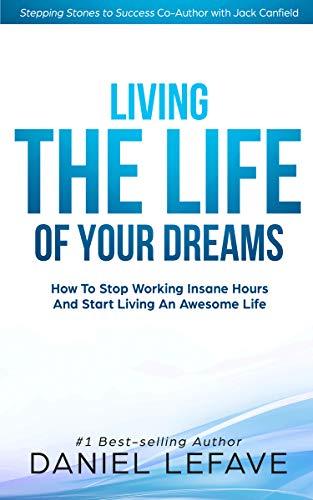
And I just said yes, but I said, “There’s a slight problem. I have a friend flying from Minnesota.” And he said, “Bring them over.” “You don’t know us?” These are the kinds of things that they’re invitations, but you’re just like thinking, “You don’t know me. You don’t know the guy I’m bringing Steve; you’ve invited us.” So anyway, Dave has treated us well. We sat in his movie room and watched the Peaceful Warrior. Do you know that movie?
Yeah. I watched it recently.
Inspiration. Yeah, there you go. But at the end of the evening and because I’m very like, I think maybe because of the accident; I’m very bold, I’ll ask anybody anything. So I just said, “Hey, show me where you work. I saw your videos. I want to see your environment, your office.” And so he did, and then at the end of the conversation, he said, “Dan, I think you’d make a great coach.” And two things, he could have been promoting me, promoting his service to me, meaning I could be a coach for him because he has that kind of business, or he could have just been saying it out of his opinion.
Anyway, I came back home, connected with a friend, and told her this story. And she said, “Well, I’m studying Bob Proctor’s stuff,” Bob Proctor from The Secret, and so I said, “Okay, let me have a look at that.” So I bought all of his programs and started studying, consuming, and gaining knowledge, and then the next thing she said to me when we spoke again was, “Why don’t you talk to his team about coaching?” I said, “All right, no harm in that.” So I did.
I remember that call very clearly because, within 20 minutes, the gentleman said, “Let’s get Bob on the phone.” And I was like, “Well, I don’t know. Okay, who’s Bob?” I don’t know who he is. I never heard of him. So within a couple of hours, they had Bob on the phone, and he was talking about coaching and the impact and all that. And he was selling me on his service because he has a coaching program that you can get certified for to teach, which I get.
In the end, no income, my wife’s off with a new baby, and I’m good at saving money. So I had money. So I just said, “Okay,” so I ended up investing $20,000 between his programs in this coaching certification, and I just stepped forward. From that point on, I just kept saying, “Yes.” I co-authored a book with Jack Canfield, Deepak Chopra, and Denis Waitley. And that was again saying, “Yes.” So I found myself just saying “yes” to almost anything, as long as it wasn’t going to cause a lot of harm, or we couldn’t afford it, or something like that.
I've established the Fave Five- faith, family, friends, fitness, and finances. First, live with faith and then family, friends, fitness, and finances. Finally, put finances at the end, to not make money their God or let it control… Share on XAs a result, I’ve written my own book, and I’m building a business where I can impact thousands of people. And it’s different from other coaching. It’s not just here’s the steps, and here’s a system, and you follow this. People don’t realize that they’re changing their identities when they’re making changes to their life and their business. They’re changing a core part of themselves, and that’s the kind of work that I focus on.
Gotcha. Your book, Living the Life of your Dreams. What’s the main outcome for our listeners beyond the obvious title? What makes this book special or different from most self-help books out there?
Well, it’s reverse engineering of your life for one. So it’s death backward. So my perspective is if you’re living a life worth remembering and living with a life worth dying for, which this book deals with. It helps you deal with both, looking forward and looking back. So from death backward, you ask yourself, “How do I want to be remembered? How do I want my family, friends, colleagues, community, and the most important people in my life to remember me? What am I leaving behind as my legacy?” So that’s part of it.
I can remember little glimpses of experiences but not anything concrete.
Also, I’ve established the Fave Five, which is faith, family, friends, fitness, and finances, in that order. So I’m challenging people to live with faith and then family, friends, fitness, and finances. Put finances at the end, not make money their God or let it control them; it’s a challenge. A big challenge because most people do things for the sake of money. And so that’s the premise of the book. So it’s reverse engineering your life. And it ties it; it’s like a perfect puzzle piece for what I do because I’m getting them to think broadly, the end, and then work backward, reverse.
Because you can connect the dots looking backward to reverse engineer that and create a life. If life were to end, what would that look like? And what kinds of things would be passed on or left behind? If you could leave something behind and then design your life now to achieve that. So again, it’s about looking forward and then knowing that if you were to get to the end, what would that look backward? Because the number one regret for people in hospice is that they did not do the things they wanted to do or didn’t take enough risk.
Looking backward, that’s a profound way of looking at life. Because it’s not about what happened in your past, it’s what’s happening in the “now.” You’re here with who you are right now, which is shaped by your decisions, attention, and intention. And all the past experiences are just input. It’s just feedback, data, and it’s in the past. So if you have a near-death experience, then I understand the life review that you may experience from that, for many, at least starts from death, working backward.
So the flashes of significant life events, how you made people feel and what you did positively and negatively start at the tail end of your life and then work backward. And through the life review towards the beginning to your birth. Did you have a life review kind of experience? When you were in your coma? Or when you were? In the accident? Maybe bleeding? or what have you looked like you might not make it or something like that? Is that something that you experienced?
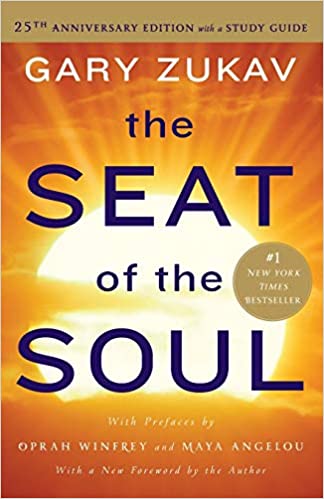
No, none of that. In fact, I don’t remember the accident. I don’t remember much of what happened leading up to it. Like I couldn’t recall anything like getting going to meet them, getting in their car and to the drive, or anything at all. It was just bang. The doctor said I lost 40,000 brain cells. I’m not sure how they could estimate that, but you know, it could be plus or minus. But the fact is, memories were lost. So and I know that because if I look back, I can remember little glimpses of experiences but not anything concrete.
So I didn’t have that kind of experience, and when I came out, I was not even clear about what happened there. I only remember being in the hospital and seeing some young girl having a birthday. And I said to my parents, “Can we buy chocolate bars?” Then going home. I was basically at home for two weeks, then thrown right back into life, like right back to school. I mean, this is a time when things were not assessed as carefully as they are now, which is, “Hey, there’s a lot of trauma there. We should probably help this child.” And so I was just kind of left to my own devices to figure things out. So I had to work through that.
And I have scars; you probably can’t see them that well, but I had a lot of stitches and so on. I didn’t have that reflection on life, but I have been reflecting little by little as I’ve been going through life. I think this book was born out of all of my experiences because now I’m saying to folks, “You know, look at your life broadly and look back and think how if you could end it and it could be ideal, what would that look like?” Because that will then tell them, “Who do I need to become? What does my future self? What is my identity? What do I want you to identify with?”
It helps you clarify your values and principles, what you’ll stand for, and what you want. When you have that, at least, when you go through life, it’s not questionable if somebody invites you to do something or be part of something, and then it goes against your values. And what’s going to get you to that end result. You say, “No!” Even if it seems like it’s going to cost you or might not be so valuable at the moment.
How did you figure out what your values are? How have you got Fave Five – faith, family, friends, fitness, and finances? But those aren’t core values. Those are areas of focus. What do you value most? How did you figure that out?
Again, I do a lot of self-analysis, I journal a lot. So I write down what I’m thinking and what’s going on, and I look for evidence. So that’s the approach that I take. At one point, I went through a program where it was helping me assess my values and gave me some samples. And so, I use that as my starting point. It wasn’t necessarily the be-all and end-all, but it gave me a place to begin. At the same time, I’m looking at, let’s say, I’m a father, so I have an identity as a father. What do I value as a father? What do I want to experience as a result of being a father? What do I want to be reflected back to me? If it’s not something that I anticipated, then I better go back to work, go back to the workshop, and work on myself and my inner knowledge and experience and values.
We have a journey that we intended to fulfill or was designed for our purpose. It is driving us forward or pulling us. And I think life is always nudging us in that direction. Share on XYou know, the thing is, I’m an athlete, so you know, that’s one of my identities. I’m a father, so these are the things that I identify with easily. I don’t have to think too heavily. And then, I start determining what matters to me about those things, and then I start formulating and forming values around them. And as you keep building, you end up having a foundation for who you are, and people can’t take that away. You own that. So that’s the approach that I took. But the key was somebody nudged me, I was doing some work. Jeff Walker from Product Launch Formula, if you know who he is, he had an exercise about values. So I ended up watching that several times, making notes, taking whiteboards, and writing all sorts of notes until I started winding things down and getting it to where I’m clear in what I want.
That’s awesome. And did you formulate any affirmations? I’ll give you an example. So one of my values is integrity and doing what I say I’m going to do. So I made an affirmation out of that, “I am a man who does what he says he’s going to do.” And I kept saying that every morning for months and made that part of my identity. I internalized that to the point where I didn’t use it anymore; it’s just that’s how I show up. My wife would beg to differ that I sometimes don’t do that. But I’m a very different man than I was, let’s say, five years ago before doing those affirmations. So I’m curious to know where your affirmations fit into this formula, and you have an example or two you could share.
Sure, well, I’m a fan of affirmations. So I’ll start by sharing the experience that I developed with my family when my first son, who just turned 14 yesterday, we’ve been doing it since he was three. So we say affirmations every single day. Now I realize this isn’t about my family and me or the things that I want. But we developed and what I’ve done is I’ve chosen affirmations that mattered to me. So, some of them are very simple. It might be “I love myself.” “I like myself.” “I accept myself.” “I’m lovable.” “I’m knowledgeable.” “I’m irresistible.” “I’m impeccable.” Just little statements like that, or could be longer ones. “I’m influenced only by positive thoughts and positive people.” “I’m alive to the joys of living.” “I’m living my life by choice and creating my future.” I mean, these are things we’ve said thousands of times because it’s been 11 years now.
That’s amazing.
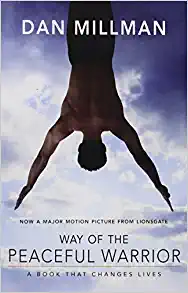
Yeah, it’s part of our routine now. At bedtime, if I’m doing something else or not around them, they’ll come and say, “We’re ready for gratitude and affirmations.” And we do things, we talk about what we are grateful for, and then affirm. When I said, “I am a big fan of affirmations.” So I have a plethora of patience. And some of them, I’ve said thousands of times. But let’s say, as an example for business, I like rhymes and alliteration. “My life and my business, we’re continuing to be optimized, organized, and systematized. My tasks outside my purpose and a piece of me are being delegated.”
I’m missing something in there. But anyway, just a number of different affirmations can set me in the right direction. And it’s about dominant thoughts. We know that Napoleon Hill talked about that. So I’ve studied his books and his teachings. But affirmations I have some for business, family, and personal.
I teach folks, who are open to doing affirmations to do them in odd moments. And people say, “Oh, what’s that?” And I say, “Well, you go to the bathroom?” “Yeah, several times a day.” “Great.” Have them on the mirror in the bathroom and say them, and see them long enough and enough times that they become normal. And then that becomes part of who you are. Then those words stick, and it becomes part of your identity. Anyway, maybe I can think of another one. That’s about business.
While you’re thinking of another one, I’ll share another one of mine. “I’m intentional on everything I do.”
Yeah, that was a good one. Intent matters so much. That’s the direction you’re going in. So I have one that “I surround myself with people who asked more of me than I asked myself.” So I want people to push me, challenge me, test me, see if I can take the heat.
If you’re the smartest person in the room, then you’re in the wrong room.
I write down what I’m thinking and what’s going on, and I look for evidence.
That’s right. What are you going to gain from or benefit from that? How are you going to grow? And I think that you know, now that we’re talking about the accidents so on. You can say that that accident was like being put in a pressure cooker. It was an incident; it was a shock. It was a jolt. It was a change of perspective. And so that’s how I’m able to go through life, and I can take the heat. Like, I’m calmer in a stressful situation. Like, somebody else’s a stressful situation. I’ve seen car accidents one outside of a hockey arena one time, and I went over and helped this woman. I could see her arm was broken, everything, she was in shock, and I was calm. I’m like I’d be like a paramedic, but I’m not. So, I’m calling, and I helped her through this situation until people arrived and the EMS.
But I think those are the kinds of things that came out of it. I can get objective and handle things differently. But yeah, to your point about affirmations, they’re amazing. Here’s something that might be valuable, and you could share this as well. I use an app for writing affirmations, and I write them every morning, and it’s been two years now. And it’s called Prompter™ like a teleprompter, prompter.ca. And it’s an app for writing affirmations, and you get a handful of new affirmations every 21 days. You just write every day, take a picture to prove you did it, submit it. And so, I’m a huge fan of affirmations.
And you mentioned gratitudes as being part of your process as well. So are you whispering those? Are you saying those out loud to your son and your son saying them back to you? Or how, what’s your process for the gratitudes part?
With our family, we do them live and out loud. So we just have a pattern, I start with my eldest son, and they pass it on to each other. So we don’t have to do a lot of heavy lifting. He finishes, and then he says to his brother, younger brother, “You go,” and then younger brother, “You go,” and then my wife goes, and then I go. And so we share what we’re grateful for in the day, and then to your question about journaling. Fortunately, Bob Proctor is a big fan of gratitude. So he gave me a gratitude journal, which I’ve been replenishing with new notepads every few months. So I’ve been writing gratitudes for years and years. So I just write a page of gratitude every single morning.

And I also picked up something Deepak Chopra talks about three questions you can ask yourself every day, and one of them is, “What am I grateful for?” So as I’m doing that walk in nature, I go into a little forest by a pond, and it’s the garden of gratitude. And that’s where I say what I’m grateful for, certainly in the morning; there’s nobody out there. So I can speak out loud. But, I mean, here’s the thing, if you think about it. If what goes out comes back, if I’m grateful for things, I’m happy about things, I’m satisfied, I’m sending out this resonance, this energy, that I’m sending out this force that says, “Hey, Universe, Infinite Intelligence, God, I like this.” And then it’ll be mirrored back to me. So that’s the approach I take instead of criticizing and condemning and judging things.
That’s great. And what are Deepak’s other two questions besides “What are you grateful for?”?
Yeah, the first one is, “Who am I?” Second one is, “What do I want?” And then, “What am I grateful for?” So as I walk in the morning, those are the questions I asked, and I asked him, and then give some time and space for the responses, the intuitive responses to come. And then, I go on to the next ones. But yeah, those are the three primary questions.
I like it. And what about being grateful for the challenges? This wasn’t intuitive to me or wasn’t obvious, I guess to me, initially. But when I got this feedback from my sister-in-law, the same one who told me about the trees having souls, she said that “I need to be grateful for the things I don’t want.” And delineate those out in your gratitude journal will help you to crystallize the lessons from each of those challenges. And so then, the challenges you receive and the problems you receive will be higher-quality as you have better receptivity and more sensitive receptivity to the lessons from each of them.
Just a number of different affirmations can set me in the right direction.
Well, the one thing you just reminded me of is I listened to this meditation by Wayne Dyer, and one of the affirmations in it, he says, “No matter how much I protest, I’m totally responsible for everything in my life.” So that’s the approach that I take, not just because he said it, but because I like that, and I do want to be responsible for everything. So then I see things that are reflected back to me as a response. So I developed a practice of bookending my day, so I set intentions at the end of my day. And then I review them the following day, like in the next evening, and then I set new intentions.
So I’m looking for evidence of what went, what transpired that day, what went on. And it doesn’t matter whether I think it’s good or bad; it’s the evidence. And so, if it’s a challenge that came through, I’m like, “Okay, well, how did I handle that? Did I get emotional? Did I get triggered? Did I react?” Because responding is way different from reacting. So then that’s where the learning comes in. But I have to do it at that moment because I might have gotten triggered and reacted during the day. But then, if I look for the evidence at the end of the day, and I realize, “Oh, now that I’m calm, actually realize I reacted, and I prefer to respond.”
How will I handle that differently so I can do what Neville Goddard talks about, which is revision. You can revise the experience, so that’s the approach I take. And so I’m looking for evidence; I call them opportunities for appreciation or phase. And so I’m just looking for opportunities for appreciation. And it doesn’t matter what they are; it doesn’t matter what my perception is. It’s just whatever showed up that day. And if it’s something that jolted or got me going and triggered me, then that’s an indication. Still, some work to do, got to dig in.
Yeah, well, this discussion reminds me of earlier in our conversation, you got this wonderful gift of 36 weeks off at 94% salary. And what occurred to me is that it wasn’t a gift from that governmental entity. It was a gift from God delivered through that governmental entity employing you. And when you voice your appreciation for these things, and you connect the dots, that everything you receive is from God through others, that they’re just the delivery agents, then it’s taking things to another level, I think. Curious what your thoughts are on that.
Intent matters so much.
I tend to agree. I’ve been studying a book lately called the Seat of the Soul by Gary Zukav. Do you know the book?
It’s on my reading list. I haven’t read it yet.
It’s great. And it ties into what we’re talking about here, which is if we have a journey that we intended to fulfill here or something that was designed for our purpose. What is driving us forward or pulling us, then I look at it that way. And I think that life is always nudging us forward in that direction. And certainly, everything that happens happens for a reason, like I could definitely look at that six months of trying to build a network marketing business and just totally beat it up and said, “That was horrible.” “It was nasty,” but I didn’t.
So it’s like it was just a stepping stone, which led me to meet Blanchard, who told me to be Bob Proctor, which led to all these other stepping stones and including the book that I co-authored, stepping stones to success. So it starts opening things up, and the way I look at it is, it’s about letting go. Because if I think that I can control everything, and I can manipulate everything, and I can get whatever I want. I think that’s an earthly perspective, and so I have a limited amount of control in my perspective.
I know that my subconscious mind keeps me breathing and heart beating, and all that is doing all these things. So I’m more or less robot in some respect or automated in some respect because otherwise, I might kill myself. Because if I’m careless, it might stop my heart from beating. So all those things are happening naturally to me. So I have limited control over what is going on. And so I take that early time in the morning, there are walks in nature, affirmations, all these little increments because they compound. They add up over time, but there are always blessings coming through. And sometimes, we don’t think much of them.
If we take a different perspective on things, we can shift a lot of things and enjoy this life. Have a life worth living. Share on XLike if I have a client who says to me, “I found a coin the other day found 25 cents.” “Celebrate it.” Like, I don’t think that the universe cares whether it’s 25 cents, or 25 million, or whatever, it’s to be celebrated. Just appreciate it is a gift it showed up, and I’ll share something that’s kind of it’s pretty vulnerable, but not many people know this, but I was finding dimes. Just dimes. Like I found dozens and dozens and dozens and dozens of dimes, dimes, and lighters. We either used lighters that could be used or whatever still, dimes and lighters. Dimes and lighters. Like I collected them. I’ve like bags of lighters and dimes.
The universe was like sending me this and I’m like, “What is this?” So I had to start doing some soul searching, investigating and I’m not sure whether I got it exactly right. But dimes, the origin of the word dimes is to tie. So I started thinking well, “Okay, I guess I should tie them where I cut ties, mentally, emotionally, monetarily.” There are many different ways or with the lighters, it was about being more lighthearted and kind of being the light in the world. And so that’s what I gathered from doing my soul searching and realized, “Okay, I have a purpose here. And I get to shine a light on some things and help some people in certain areas and also have an identity, or identities.”
Did you happen to have a loved one who smoked and had lighters on them all the time?
Not at all. No, not even close. I find these things in the most obscure places like I might be getting the car –
I write a page of gratitude every single morning.
I ask is because I just learned earlier this year, interviewing Karen Noe. The famous medium that loved ones who pass will sometimes communicate with us give us clues that “all is well,” like the loved one, maybe the spouse, the widow, or widower, will keep finding feathers everywhere. Just like there’s feather when I went on a walk, and theirs another feather, and there’s like, then they start collecting all the feathers because they’re just showing up all the time. And that’s the loved one. Putting that little clue in front of you so that you know that they’re well and all all’s-good over on the other side of the veil.
My grandmother was a smoker, but I don’t know that it could be her. But that’s it. But yeah, I don’t know if there’s any. I suppose it could be her. She was a smoker and lived like 94. She’s resilient and strong.
Speaking of asking, have you ever gotten a clear message from the other side from a loved one, or angel, or guide, or anything like that?
I don’t know if it’s anybody specific, but there are times when I got little nudges. And it might not be much, something that’s not super significant. But I remember being in Mauritius where my wife is from, and I remember swimming in the water, and the wind blew over my snorkel. So blew over that, and I heard the words “Get out.” And I was like, “What?” And then so I said, “Okay, I’m going to get out.” So I get out of the water. And then, within a few moments, water started gushing down; we needed to go and shelter and keep dry.
There are always blessings coming through. And sometimes, we don’t think much of them.
But there are instances like that, or sometimes I get intuitive nudges. Again, I know how significant they are. But there was one time we were at the airport, we’re flying back, and I got it, it just hit me. I was like, they’re going to give us first class, they’re going to move us, and then within moments, they called us and said, “Would you mind moving first-class?” “Yeah, please.” Especially on that 12-hour flight, so there are little things like that. But, and again, I was very intuitive nature.
So as a child, my dad was a hunter, like, let’s kill everything. And then there’s me, the little bird that lands on the doors; it’s about the close and crushes its little feet. I picked it up, baby bird and took it away. And I had a seagull one time I brought home, and my dad had to tell me, “Its wings are broken. You’re going to have to put it down.” I don’t want to do that. But I did. And I brought dogs home, dogs followed me home, cats follow me home. Those are the kinds of things that happen.
Sometimes I get these intuitive nudges, or let’s say, a stone hits my windshield and chip a nice spot that you can see. And my reaction is, “What did I do for that? How did I cause that? Why do I need to act like that?” I’m having a dialogue instead of saying, “Oh, that’s going to cost me. It’s going to take time,” and all this just like, what does that mean? I start questioning these little incidences because they have meaning. I’m thinking that life isn’t happening to me, it’s responding. There’s constant feedback, and I’m looking for it.
I’m not like, I’m expecting it. If I see a dead rat, which I did the other day, I question it. I’m like, “Okay, what’s the spiritual meaning of that?” or mice that were in my backyard climbing all over my barbecue? So I questioned these things and looked for little bits of evidence, but I’m also tuning in more into the spiritual, and because of reading Gary’s book, I’m learning about the soul and things like that, and how we have, as he said, “We have like a mother ship. That’s trying to lead us along, and we might be going against it.”

So I’m looking for evidence to keep me moving forward and be more like water. There’s a little quote that I picked up from a movie my kids were watching. “I’m allowing my emotions to flow like water.” So, think about that many emotions flow like water, which is pretty challenging. But if you could see every incident that would happen, you say, “Oh, this is interesting.” But most times, we get triggered, and we go right into our reaction.
Yeah, that’s good to be an investigator of your triggers so that you can connect those dots and defuse the triggers. I’m curious about the mother ship concept from Gary Zukav; he’s referring to your higher-self, your oversoul, your light avatar. Is that what the mother ship refers to?
He explained this way that like, let’s say, in a fleet of ships, like back in the olden days, there was always a mother ship like a headship that’s kind of leading the way. And he said that we all have that mother ship. That is the leader, that’s like the leader of us that. There might be multiple souls like us that are following that mother ship, and he says, “There are times when you could be going the opposite way, and you’re going against the current. But if you can tune into what that mother ship is calling you to do and step up and be courageous, and let go.” I mean, I think that’s the greatest thing is letting go because we’re living in a vacuum. And if we don’t let go of something to bring in something new, we’re just caught in the same routine habits and live and die by them.
“I’m allowing my emotions to flow like water.”
Right. So one thing I want to circle back on briefly, I know we’re running short on time here. But you’d mentioned finding 25 cents or the quarters on the road versus whether it might be $25 million, it’s still important, and it reminded me of a Kabbalah teaching that disrespecting the penny that you find in stepping on it or tossing it aside, if the penny jar at the gas station, you get some change. It’s a penny; I don’t want that. And you throw it into the jar because you don’t want it. That disrespect of the energy has implications. It has effects, and it’s not great. And it’s not like you’re disrespecting just a penny; you’re disrespecting the energy of prosperity of what the money represents. It’s just the size of the vessel is different in a penny versus a million dollars. So that’s something that occurred to me while you’re talking about the 25 cents, and the dimes, and all that.
Well, there’s a great analogy that I use, which is, let’s say, if I had one hand, I had this shiny coin, and then, on the other hand, I have $10,000. And I say, “Okay, you want the $10,000, or you want the shiny coin?” People always say, “Well, give me the $10,000.” And then I say, “Here, great, fantastic habit. By the way, this is from a scallion, and it’s 300 years old, and it’s worth $25 million.” You just said no to 25 million because of relevance or personal perception, right? I’ve just mentioned something; we have six mental faculties: perception, will, imagination, memory, intuition, and reason. That’s something Bob Proctor taught me, and never forget it, we have those powers. And if we take a different perspective on things, we can shift a lot of things and enjoy this life. Have a life worth living.
Right, a great way to end this episode. Thank you so much. And Dan, if our listeners or viewers want to work with you, get some coaching from you, or follow you and get some insights that way, what would be the best way for them to get in touch?
I think the greatest gift I can give is this tool that I have in it is a planning system, but it helps you balance your business, health, and well-being in your relationships. And so I call it the 12-Week Focused Productivity Planner. And it enables you to get your career, health, well-being, and relationships into not necessarily perfectly balanced but in a position so that you can say, “That was a good day.” I felt I did some good things today, or it doesn’t matter whether it was a perfect day, but at least you’re taking care of those areas. Because if your health goes down and everything else fails. If your relationships go, your health’s probably going to follow, and then business or career will follow, go down as well. I have it at lefavecoaching.com/freefocus, and anybody can grab that and use it. It’s a neat little tool; there’s a video that shows you how to use it.
The greatest thing is letting go. If we don't let go of something to bring in something new, we're just caught in the same routine habits and live and die by them. Share on XAwesome. And then your main website, and if you want to share your favorite social channel and what your handle or username is, that would be great, too.
Sure. My website is lefavecoaching.com. And in the website or the social network on predominantly is LinkedIn. And you can find me there; you can just search for Dan Lafave. And you’ll find me there. And I post regularly, and I post value. I’m not somebody posting quotes and stuff even though I have them. But yeah, I’m posting value and challenging, deep questions that are testing the limits of our potential.
Thank you, Dan. Thank you, listeners, and we’ll catch you on the next episode. In the meantime, make it a great day for not just you but everyone around you. This is your host, Stephan Spencer, signing off.

